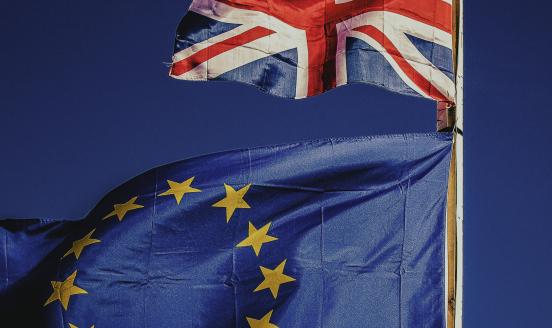The UK election viewed from continental Europe: Meh
It will take more than the vote on December 12 to make the continent pay attention to the UK. Viewed from the continent, the UK election is one more e
Viewed from the continent, the UK election is one more episode in a Brexit series that “jumped the shark” long ago. It is increasingly difficult for continental audiences, by and large, to feel emotionally connected to the British political drama.
Leaving aside the campaign’s superficial entertainment value, it is not even clear that very much is at stake from a continental perspective, given the UK government’s willingness to put off, repeatedly, its most difficult choices. It will take more than the vote on December 12 to make the continent pay attention to the UK.
To be sure, Europeans are diverse, and generalisations are always fallible. The Republic of Ireland, for example, is a special case, and this partial view does not intend to cover it. But when it comes to “continental Europe” there are some common threads to the mood about the UK.
The general feeling is one of estrangement. Among the UK’s main political parties and leaders, there are barely any that continentals find appealing. In 2016, in the aftermath of the referendum, there were political forces and constituencies across Europe that were happy to identify with the Brexit camp. France’s Marine Le Pen tweeted, “Victory for Freedom!” on the day after the vote, and the Netherlands’ Geert Wilders declared, “Now it’s our turn.”
Three-and-a-half years on, by contrast, most if not all anti-elitist parties in the EU27 have pivoted from the idea of leaving the EU or euro area. Instead, they are urging transformation from within — the slogan is no longer Burn Brussels, but Change Brussels. The European Parliamentary election last May was illustrative of that shift. It also witnessed an unexpected trend reversal in turnout, which jumped by eight percentage points after decades of decline. It was a clear sign of interest, if not of confidence, in EU institutions.
Meanwhile, the “remain” camp does not offer much to inspire continentals. The Labour leadership looks lacklustre, rather than inspirational, and the Liberal Democrats seem to have slumped. Scottish nationalists may elicit more emotional support, but they remain a niche interest.
Some figures occasionally win popular appeal here on the continent, but they’re typically on the periphery. John Bercow was one, and, of course, the Queen. But in the main, Leavers have an unfortunate tendency to insult their European neighbours indiscriminately, and Remainers tend to be lukewarm in their commitment to an ever-closer union. Neither camp sparks much enthusiasm across the Channel.
The experts and decision-makers are left scratching their heads. The reaction to Britain’s current political plight covers a wide range. Some simply want to limit the damage at almost any price, while others want to take advantage of the UK’s weakness for their own benefit or that of the EU27 as a whole.
But, ultimately, this does not matter much, at least in the near term. The key parameters of the EU negotiating position were set long ago, and no one wants to change a negotiating stance that appears to have been very successful so far. From the continent’s perspective, the key decisions are in the hands of the British; the rest of Europe can only watch, and hopefully stay patient.
But this patience offers diminishing returns. Successive extensions to the Article 50 deadlines have persuaded continental onlookers that what the UK press calls “cliff-edges” are, at most, modest bumps on a rather gentle, if downward-tilting, slope. The commentator who in the last twelve months described a single step as “critical” now knows better.
An increasing number of participants, including from the business community, think nothing dramatic will happen any time soon. And they are probably correct. Talk of a “no-deal” scenario materialising on December 31, 2020 is less plausible than it was about last October 31, which itself was a less credible cliff-edge date than last March 29.
Neither the EU27 nor any half-responsible UK government has any interest in falling off a cliff. Irrespective of what they say, it is rational to anticipate they will find a way not to make the stupid leap, if only at the eleventh hour. That perpetuates the uncertainty and generates pain for everyone involved, but it is still better than the alternative.
In the meantime, a lot is happening in the wider world, much of it alarming, and most continental European countries have turbulent politics of their own. These occupy the minds of continental audiences far more than the Brexit drama, which seems never to end. And quite possibly, it never will.




